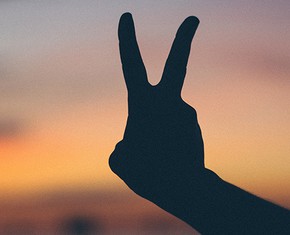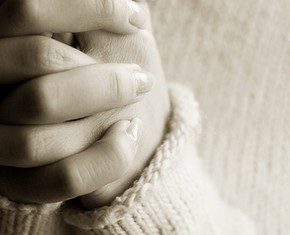The views expressed in our content reflect individual perspectives and do not represent the authoritative views of the Baha'i Faith.
People always say that when you forgive someone, it isn’t just for the person you forgive, but also yourself. But how does this work? What is true forgiveness?
Putting this idea into action is often very difficult. We often struggle to forgive one another and sometimes don’t know what true forgiveness looks like. In trying to understand the meaning of true forgiveness, I’ve looked into the explanations the Baha’i writings offer.
RELATED: My Path to Forgiveness and Emotional Healing
The Baha’i writings approach forgiveness from many angles. One of these is the forgiveness of others. Naturally, when we are wronged, we have an emotional reaction — sometimes we feel overwhelmed with anger, while other times we feel a wave of sadness. Sometimes, we feel betrayed and unsure, and other times we feel utterly horrified by what another person has done to us. With this in mind, I came across a passage from the Baha’i writings that made me wonder if I understood forgiveness at all.
In this passage, Abdu’l-Baha, the son of the prophet and founder of the Baha’i Faith, Baha’u’llah, said: “If someone commits an error and wrong toward you, you must instantly forgive him.”
This passage threw me for a loop. I wondered: How can I possibly forgive people right away? Don’t I need time to process my pain before being expected to forgive?
As I pondered these questions, I realized that maybe forgiveness doesn’t mean that we put all negative emotions behind us. We often assume that someone has to feel complacent about what happened to be able to forgive, but this definition might fall short of the essence of true forgiveness. True forgiveness allows for the natural emotions we experience to bubble up, and can mean recognizing that the people who have wronged us are complex, flawed, and noble — just as we are.
Another passage helped me to understand better that moving towards forgiveness and doing so as quickly as possible is truly beneficial for our internal health. The Universal House of Justice, the international, democratically-elected Baha’i governing body, wrote that forgiveness “ is an essential part of the spiritual growth of a person who has been wronged. To nurse a grievance or hatred against another soul is spiritually poisonous to the soul which nurses it, but to strive to see another person as a child of God and, however heinous his deeds, to attempt to overlook his sins for the sake of God, removes bitterness from the soul and both ennobles and strengthens it.”
RELATED: Making Sense of Anger at Injustice
But what about injustice? Does this mean that entire societies, organizations, and communities are expected to forget history, or let go of the fact that injustice still flourishes in our world? The Baha’i writings clarify that forgiveness and justice are both necessary to create a healthier world. A quote from the National Spiritual Assembly of the Baha’is of the United States, included in a compilation of guidance for Local Baha’i Spiritual Assemblies, clarified:
“Although individuals are admonished to forgive one another on a personal level, this does not imply a right on the part of one individual to excuse another from the consequences of serious misconduct or criminal behavior. Judgment in such matters… can only be provided by duly constituted institutions.”
Additionally, when we think about specific vulnerable populations and historically oppressed communities, it is the entire community’s responsibility to practice vigilance. We don’t use forgiveness as an excuse to allow the perpetuation of injustice. We often talk about forgiveness in the context of forgiving others. While learning to forgive others certainly requires our attention, we may forget how connected the way we treat others is to how we treat ourselves. To treat others with kindness and forgiveness, we need to learn how to shower ourselves in this same love. The Baha’i teachings say we should: “Pray to God day and night and beg forgiveness and pardon. The omnipotence of God shall solve every difficulty.”
As we pray for forgiveness, any internal shame or guilt we harbor can be healed. In fact, this passage suggests that every difficulty can be solved through asking for God’s forgiveness. In my own life and prayers, I like to remind myself that as I pray to God, I’m not praying to some far-off entity; rather, God is close and even within me.
Encouraging this tiny piece of God that exists within me to forgive is a step towards removing barriers that get in the way of contributing to the health and happiness of myself and others.
















Comments
Sign in or create an account
Continue with Googleor